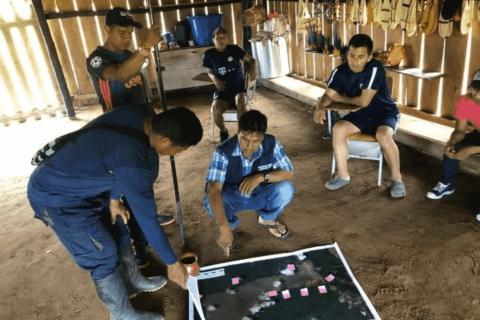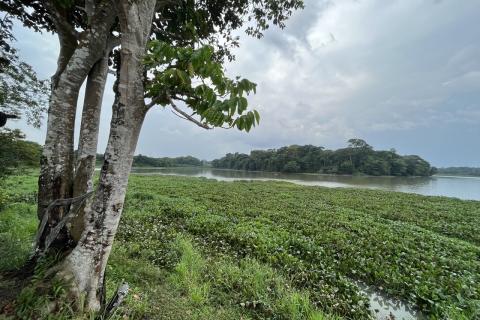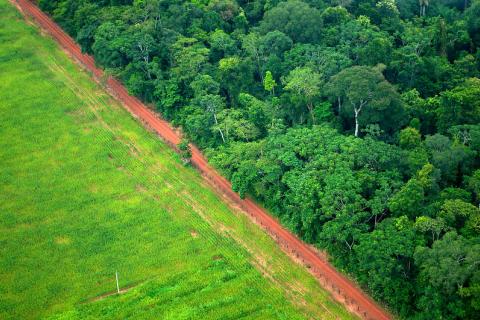Understanding the link between Climate & LAND-at-scale country projects - Climate Change and Land Governance in the Indigenous Reserve Teofina La Arenosa, in Solano, Caquetá, Colombia
As part of a scoping study titled Land Governance for Climate Resilience: A review and case studies from LAND-at-scale projects headed by Richard Sliuzas, Emeritus Professor, University of Twente, Tropenbos Colombia dove into the links between climate and land governance in their project.
RI launches Tenure Tool – the world’s largest online database on Indigenous and local communities’ forest tenure
RRI is excited to announce the launch of its new online Tenure Tool. This platform, hosted on RRI’s website, will give rightsholders, researchers, activists, policymakers, and the public free and easy access to qualitative and quantitative data on the forest tenure rights of Indigenous Peoples, Afro-descendant Peoples, local communities, and the women within those communities.
The Tenure Tool houses the largest and most comprehensive dataset to date on Indigenous, Afro-descendant, and local communities’ forest tenure rights, drawing on longitudinal data sets maintained and regularly updated by RRI.
Journalism project highlights solutions to land and environmental challenges
Indigenous Forests Are Some of the Amazon’s Last Carbon Sinks
Forests around the world play a major role in curbing or contributing to climate change. Standing, healthy forests sequester more atmospheric carbon than they emit and act as a carbon sink; degraded and deforested areas release stored carbon and are a carbon source.
Governance of forests and its impact on the persistence and re-emergence of forest patches: An archetype approach
Studies in forestry have predominantly focused on the degradation of forests, with significant policy attention across the global and national levels. Despite reported increases in deforestation in tropical forests (Wimberly et al. 2022) , there is scattered evidence of forest resurgence around the world (Chazdon et al. 2020) . Yet, there are limited empirical studies to explain the governance factors influencing such forms of transition.
Projecting development through tourism: Patrimonial land governance in Indonesian Geoparks
This presentation introduces the role of patrimonial governance in capitalizing on constructed geo heritage landscapes in Indonesia. More specifically, the role this particular system of governance plays in commodifying geology through the creation of a geopark to meet nationally defined tourism development aspirations.
Indigenous peoples and local communities can save our forests: but governments must put them on the map
International Day of Forests: 21 March
A new study, published ahead of the International Day of Forests, warns that the Amazon is now nearing its tipping point; its ability to recover from disruption, such as droughts or fires, is rapidly reducing, increasing the risk of dieback of the Amazon rainforest and potentially releasing up to 90 billion tons of greenhouse gases into the atmosphere.
Deforestation in Cambodia: A story of land concessions, migration and resource exploitation
Since the turn of the century, 27,000 km2 of land in Cambodia has been deforested. This is 14.8% of total land area in the country. It also represents 26.4% of forest cover as existed in 2000.
An acceleration in deforestaton is seen from the early 2000s to 2010. For the land‐grab aficionado, the trend runs parallel to the ‘global land rush’ and mirrors the evolution of agricultural commodites prices.
PhD Session II
In the second PhD session of the LANDac Conference 2021, three PhD researchers presented their work in progress. We learned about slums in Abuja, Nigeria, about forest rights in India, and about the relation between inequalities in soil fertility, gender, and access to subsidies. Each presentation was discussed by an expert from the LANDac network.
Key Takeaways
Indigenous forest tenure: the important role local people play in forest conservation and carbon management
A new data story based on a recent study by the FAO demonstrates how the forests of indigenous and tribal territories in Latin America are key for mitigating climate change and conserving biodiversity.






